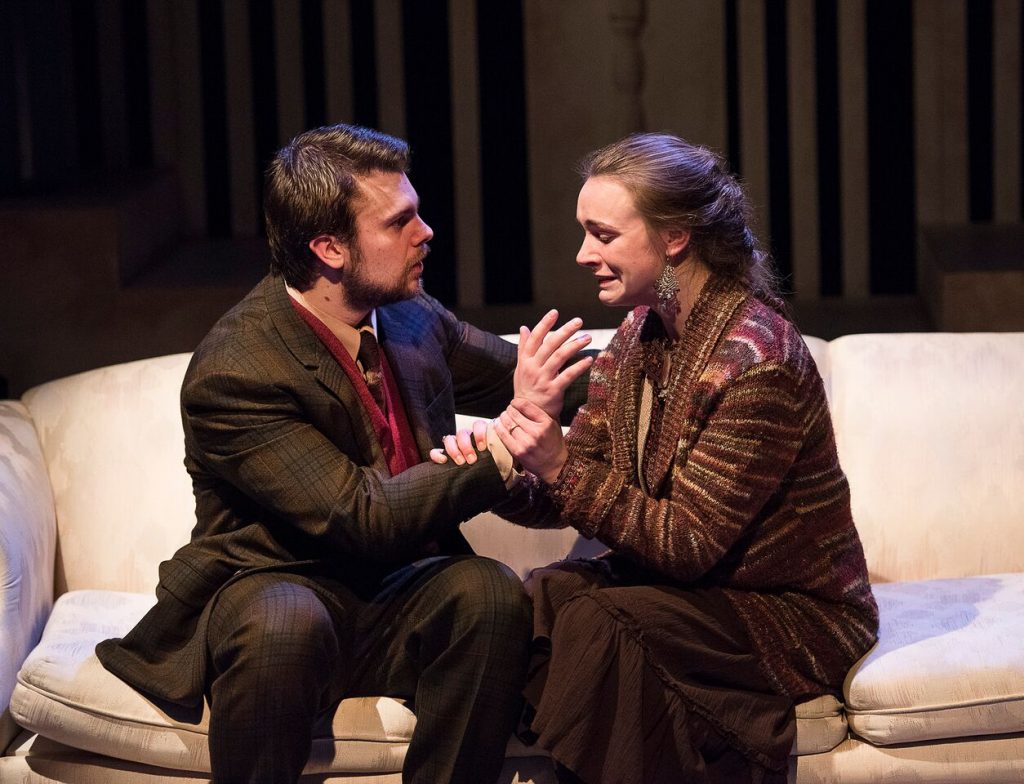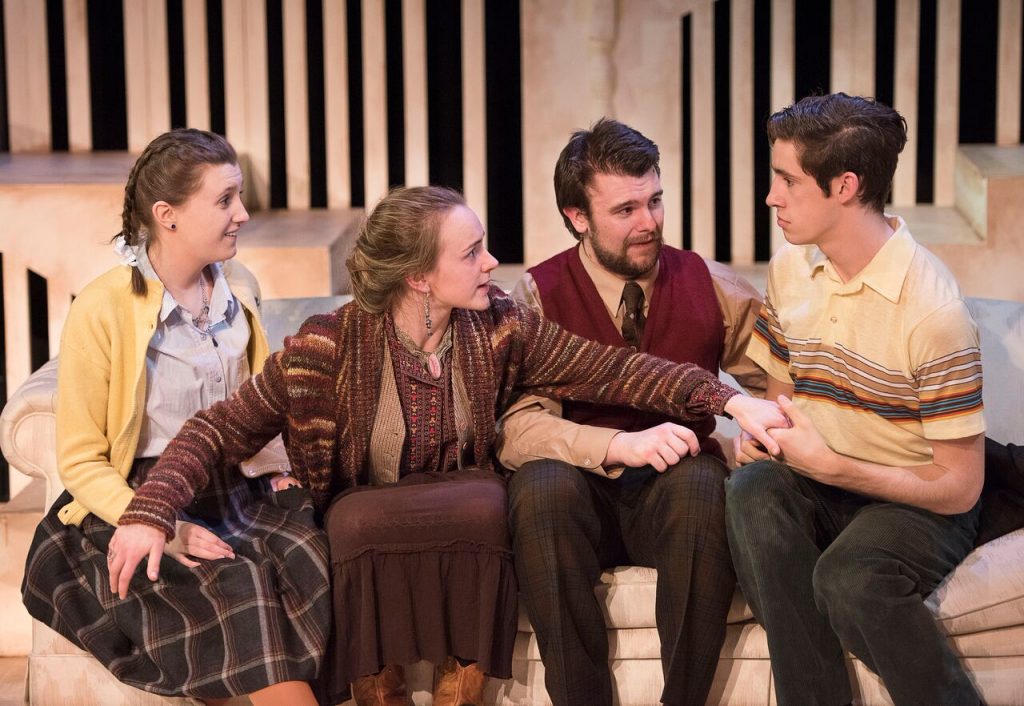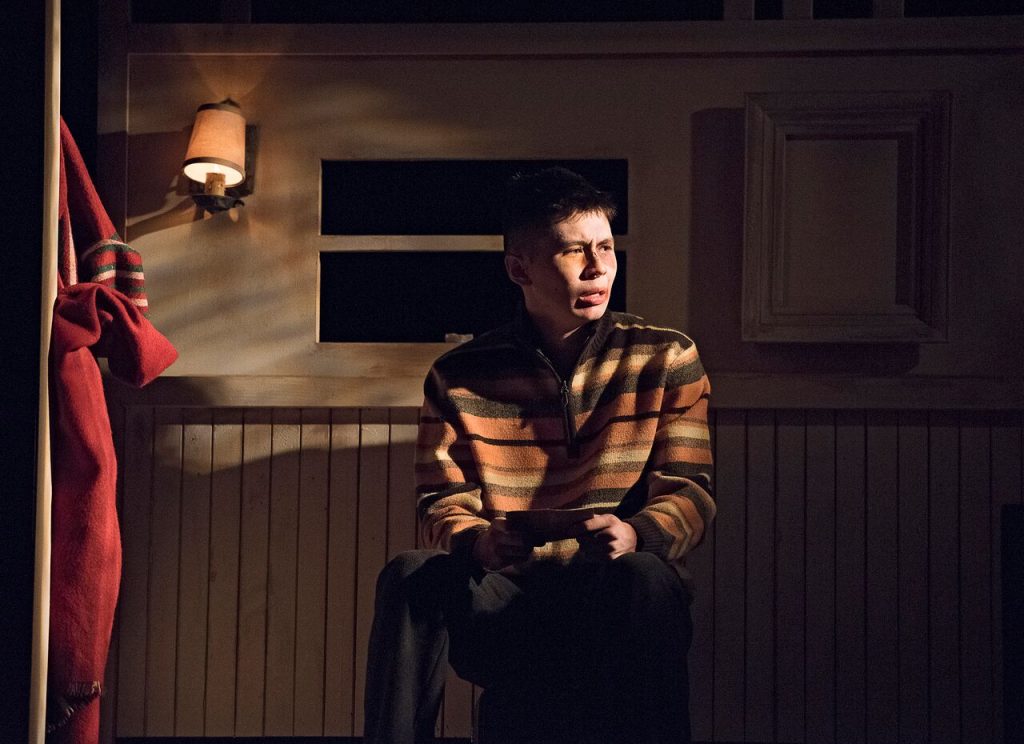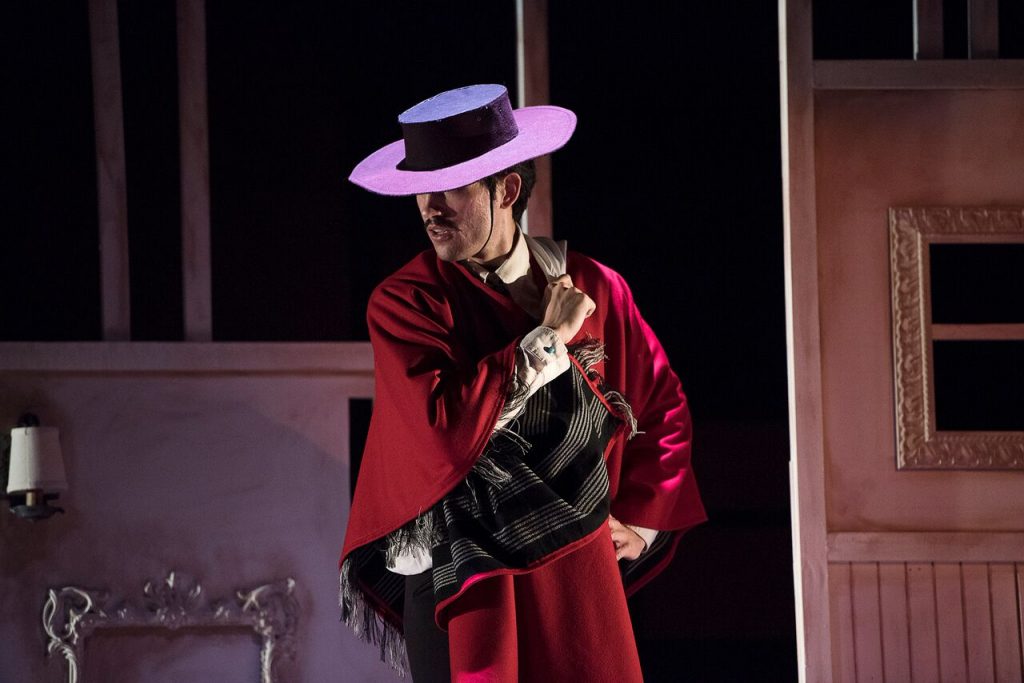
Credit: Emily Cooper
Studio 58 until April 9, 2017
604-684-2787/ticketstonight.ca
Posted March 27, 2017
Two very interesting shows are happening simultaneously in Vancouver right now: Refuge at the Firehall Arts Centre until April 1 and The Refugee Hotel at Studio 58 until April 9. In Refuge, the refusal of the Canadian Immigrant and Refugee Board to grant refugee status to Ayinom, an Eritrean army deserter and reputedly “a good man”, puts our nation’s much-celebrated fair-mindedness under the microscope. What the play does make clear, however, is that refugees and immigrants from war-torn countries look to Canada as one of the best countries in the world in which to seek asylum.
In The Refugee Hotel, written and directed by Carmen Aguirre, we see a happier, different story: a Chilean family of four – Jorge (Logan Fenske) and Flaca (Elizabeth Barrett) and their two adolescent children Joselito (Teo Saefkow) and Manuelita (Krista Skwarok) – arrive as refugees at the so-called Refugee Hotel in Vancouver where they stay, free of charge, and are helped to find work and permanent lodgings.

Credit: Emily Cooper
As revolutionaries, Jorge and Flaca have been tortured; Flaca bears the physical scars – her breasts have been disfigured and, she says, “My cunt hurts like hell.” Jorge’s wounds are psychological; broken, he is haunted by flashbacks.
This is Aguirre’s real story, the so-called Refugee Hotel was on Denman Street and she was a child of six when she arrived from Chile with her parents. Her family might have been met by a well-meaning, non-Spanish speaking welcoming committee, too. In the play, the greeter mangles Spanish with shouted snippets of French and ridiculous bits of Spanish like, “Arriba, arriba” and, “Comprende?” Actor Emily Doreen Wilson makes good-hearted mincemeat out of the communication gap which, because her character speaks no Spanish, borders on the ridiculous. Obviously, in this Studio 58 production, everyone speaks English but we understand that the Chileans are really speaking Spanish.

Credit: Emily Cooper
Also at the Refugee Hotel are other refugees including Manuel (Mason Temple), bearing terrible scars from having recently been tortured; Juan (Joshua Chambers), a prison escapee; Isabel (Lisa Baran), struck mute as a result of wartime horror; outspoken Cristina (Alina Blackett), determined to carry on the Marxist/socialist work here in Canada.
Non-refugee characters include goofy hipster Bill O’Neill (David Johnston) and Jackie, the hotel desk clerk (Julien Galipeau).
There’s a lot going on and it ends so optimistically that had Aguirre written The Refugee Hotel today and not twenty years ago, it might be quite different.
Yvan Morissette meets the challenge of producing a second-rate hotel interior: a lobby and check-in counter, a staircase leading to three rooms with no furniture where the refugees huddle and sleep on stacked suitcases. Looking shabbily chic today, the hotel twenty years ago would simply have looked rundown.
Absolutely luminous in this production is Elizabeth Barrett as Flaca, the mother. It’s a jewel of a role for a young woman: strong, passionate, compassionate, loving and when dancing, has those hot Latina moves. Barrett cries real tears, smiles real smiles. When a Chilean record and record player are found and the voice of Chilean revolutionary hero/ musician Victor Jara rings out, it’s an achingly beautiful moment with Barrett motionless at centre stage, lost in memories of home.
Logan Fenske has a tougher challenge and makes the most of Jorge who oscillates between spouting political rhetoric to being drunk and petulant.
Mason Temple’s description of the torture inflicted on his character Manual is horrifying but he remains controlled and chillingly matter-of- fact.

Credit: Emily Cooper
Moving in the direction of magic realism is the Cueca Dancer (Matthias Falvai). Colorfully dressed in a scarlet poncho, black boots with spurs and flashing a white bandana, the dancer is a spirit character who moves in and out of the play, seemingly goading the characters to choose life over despair.
Manuelita, as a grown up, tells us, “It takes courage to remember. It takes courage to forget. It takes a hero to do both.” Heroism is a lot to expect of those seeking refuge in this mostly kind and welcoming nation.

